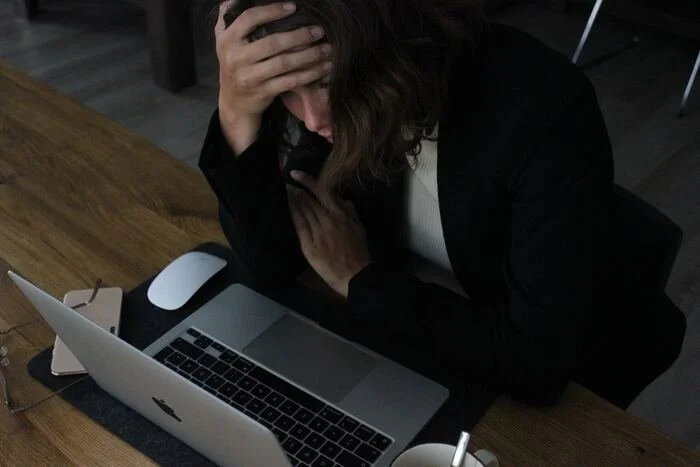Health Anxiety
Worrying about symptoms, health and how we feel can be one of the scariest, loneliest experiences. But with the help of a therapist, we can help turn health anxiety into a reasonable concern for our bodies.
Understanding Health Anxiety
It’s normal for all of us to worry about our health, particularly if we experience feelings or symptoms that are new or out of the ordinary.
But sometimes, ordinary worries can grow into anxiety that affects everyday life. Health anxiety, sometimes called hypochondria, is defined as excessive worry about being or becoming seriously ill. People with experience of health anxiety often report a kind of ‘hyper vigilance’ or ‘hyper awareness’ of symptoms or their whole body.
In a handful of cases, people might experience physical symptoms of depression or anxiety as symptoms of a physical problem.
The Diagnostic Manual (DSM) refers to ‘Illness Anxiety Disorder’ but clinicians and therapists may refer to this problem simply as ‘health anxiety’. Some clinicians may also prefer to group this under a different diagnosis, such as generalised anxiety or Obsessive Compulsive Disorder (OCD).
People with health anxiety may spend a lot of time checking or researching symptoms, either on their own or with friends, family or clinicians. Health anxiety might appear to act a little like Obsessive Compulsive Disorder (OCD) as the anxious person struggles to find or accept reassurance about their health.
Experts call health anxiety a ‘somatic amplification disorder’, meaning that body sensations feel intense and overwhelming for people with health anxiety, compared with how they feel for others.
Signs Of Health Anxiety
According to Anxiety UK, signs of health anxiety include:
Feeling preoccupied over the last six months about a serious illness.
Feeling upset about the serious illness you’re preoccupied with.
Experiencing a negative impact on family life, social life, on work from this anxiety.
Feeling the need to carry out constant online searches, self-examinations and self-diagnosis.
Experiencing disbelief or feeling unconvinced by a doctor’s reassurance.
Wanting reassurance from doctors, family and friends, but disbelieving them.
Health Anxiety After Health Problems
In some cases, health anxiety might be triggered by serious health events in ourselves or others. This might be because the person experienced serious ill health as a child or witnessed a parent or siblings facing a serious medical condition themselves.
Cancer Research UK has a particular resource for people who experience mental health concerns after treatment. They warn that fear of recurrence is common after cancer, particularly when people see their healthcare professionals less frequently.
They also warn that follow-up scans may trigger or increase anxiety. Anxiety about follow-up scans may decrease over time, but if it doesn’t seem to, the nurse liaison or support team may be able to provide specific help with that.
Self-Help For Health Anxiety
The NHS recommends practising some self-help exercises for health anxiety.
These include:
Keeping a diary to record checking and reassurance-seeking. Reading back the dairy can help people with health anxiety attempt to reduce checking and reassurance-seeking over time.
Doing a ‘challenge’ exercise. In two columns, list a worry and then a balancing thought: for example: ‘I’m worried about headaches’ and then ‘Headaches can be a sign of stress’.
Keep busy. Instead of checking or reassurance-seeking, call a friend or go for a walk.
Go back to normal life. Gradually attempt to return to activities you may have stopped because of your anxiety, such as going out and seeing friends.
How Therapy Can Support You With Health Anxiety
Therapy is a recommended treatment for health anxiety and can help you understand the complex relationships between you, your body and feelings of anxiety.
Cognitive Behavioural Therapy (CBT) for Health Anxiety
Qualified CBT therapists can teach you skills and exercises for dealing with anxiety, particularly health anxiety. CBT may also be a good way to learn about what triggers health anxiety and how anticipating triggers can help you manage your experience of anxiety.
Person-Centred Therapy for Health Anxiety
Therapists who practise person-centred therapy can help you explore health anxiety from your own unique perspective. The therapy is client-led, giving you a sense of safety and control over the content and pace of the therapy at a time when you may be struggling to feel your body as a safe place.
Person-centred therapy may also lead you to new connections between you and your relationship with your body.
Mindfulness for Health Anxiety
Relaxation, meditation and mindfulness are all recommended for health anxiety and anxiety more generally. Meditation practice can help you develop a tolerance for sitting with negative or intrusive thoughts and experiencing what it’s like not to act on the impulse to check or seek reassurance.
Please get in touch with us to learn more about therapy for health anxiety or schedule an appointment for a free initial consultation.
Health Anxiety: Frequently Asked Questions
What is health anxiety?
Health anxiety (illness anxiety disorder) is persistent worry about having or developing a serious illness despite medical reassurance. It often includes frequent checking, scanning the body, online searching and avoidance of healthcare.
How can therapy help?
Our psychologists use evidence-based therapies, including CBT, and related approaches, to reduce reassurance-seeking and checking, reinterpret bodily sensations more helpfully and build tolerance for uncertainty, so worry takes up less space.
Is therapy available online?
Yes. We offer secure online therapy UK-wide using the same structured, supportive approach as in-person sessions in Wimbledon.
How long does treatment take?
The length of therapy varies depending on the individual’s needs, severity and goals. Many people benefit from weekly sessions over a few months, with the option to continue longer term, if needed. Your psychologist will review your progress regularly and adjust the treatment plan to meet your needs.
How do I get started?
Book a free 15-minute consultation with our Clinical Director to discuss your needs and be matched with the most suitable psychologist on our team. In-person sessions are available in Wimbledon, and we also provide online therapy UK-wide.

